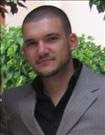 Based on our today’s seminar, the Leadership within Innovation and Business Creation, I would like to write over some of my thoughts did surface after the lecture. We had a really interesting and helpful discussion, contemporary and future challenges and possible implications towards these directions for the managers were discussed, and many interesting points were raised. Eventually some of the issues which we as candidates of future’s managers should expect to deal with emerged as globalization, environmental issues, cultural clash, rapid technological changes, and scarcity of natural resources, financial breakdown and possible recession and such. Needless to say these alterations will be strong reflections over the managers therefore apart from the regular management duties as planning, organizing, monitoring and such, the management level will also need to revise some old habits and further gain some new skills, abilities, attitudes and behaviors to overcome these ongoing and some newly born issues. You will find some of the crucially important abilities and attitudes from my perspective in the following paragraphs:
Based on our today’s seminar, the Leadership within Innovation and Business Creation, I would like to write over some of my thoughts did surface after the lecture. We had a really interesting and helpful discussion, contemporary and future challenges and possible implications towards these directions for the managers were discussed, and many interesting points were raised. Eventually some of the issues which we as candidates of future’s managers should expect to deal with emerged as globalization, environmental issues, cultural clash, rapid technological changes, and scarcity of natural resources, financial breakdown and possible recession and such. Needless to say these alterations will be strong reflections over the managers therefore apart from the regular management duties as planning, organizing, monitoring and such, the management level will also need to revise some old habits and further gain some new skills, abilities, attitudes and behaviors to overcome these ongoing and some newly born issues. You will find some of the crucially important abilities and attitudes from my perspective in the following paragraphs:Success comes along with trust
Building up relationship on mutual trust is located in the heart of the organizations, the other way around will block the development and the progress. Being trustworthy and open minded will definitely ease the work on managers’ shoulders.
The coming age will be the age of collaboration
Managers have to have the ability and capability to create a strong business network and cooperate with various external parties in order to gain and conceptualize knowledge and innovative ideas.
Doing the right things to do
Generally speaking environmental consciousness around the world has been increasing over the past decade. Consumers are more aware of the issues emerging around them. In this sense future managers shouldn’t be driven merely by profit and success, in fact always act socially responsible manners.
